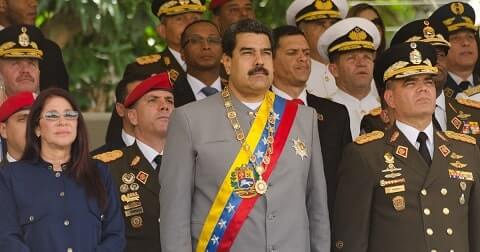The Venezuelan government has officially announced the suspension of the national cryptocurrency, Petro (PTR), from January 15, 2024. Launched in 2018, the Petro was touted as an oil-based digital currency aimed at circumventing U.S. sanctions and easing economic pressures. This is due to the devaluation of the bolivar, Venezuela’s legal currency. However, Petro’s journey encountered difficulties and eventually led to its discontinuation.
Petro’s fight for adoption
Despite being a pioneering concept, Petro has struggled to achieve mass adoption. introduced at the time Bitcoin Petro, which already had a significant presence in Venezuela, could not replace or complement the growing popularity of existing cryptocurrencies. The issuance was commissioned by President Nicolas Maduro but was not declared a legal tender in the face of opposition from Congress. This lack of mandatory acceptance has severely limited domestic use.
Legal and operational challenges
Petro’s journey was marred by several legal and operational hurdles. Notable among them was the arrest of Venezuela’s cryptocurrency regulator Joselit Ramirez Camacho on charges related to financial crimes in the country’s oil industry. Additionally, Petro’s management faced allegations of involvement in international drug trafficking, which further tarnished Petro’s reputation and hindered its introduction.
Limited functionality and international rejection of Petro
The Petro has never been traded abroad, despite efforts to promote it as a Bolivarian ally for the American people. Domestically, its use was restricted to certain state tasks, such as paying taxes and paying traffic fines, but its practical application was still limited. For example, fines imposed on Petros cannot be paid using the cryptocurrency itself, highlighting its operational limitations.
Closure and conversion to Bolivar
With the closure of Petro, all cryptocurrency wallets on the Patria platform, previously Petro’s only trading platform, will be closed. The remaining Petros were converted to Bolivar, ending Venezuela’s experiment with an oil-based digital currency. This transition reflects the broader challenges of implementing a national cryptocurrency, especially in an economically and politically unstable environment.
conclusion
Petro’s story is a cautionary tale about the complexities of national cryptocurrency adoption. This highlights the importance of legal credibility, widespread acceptance, and real-world functionality to the success of such digital currencies. The suspension of the Petro is a significant moment in the history of digital currencies, highlighting the difficulties state-backed cryptocurrencies face in securing legitimacy and adoption.
Image source: Shutterstock

